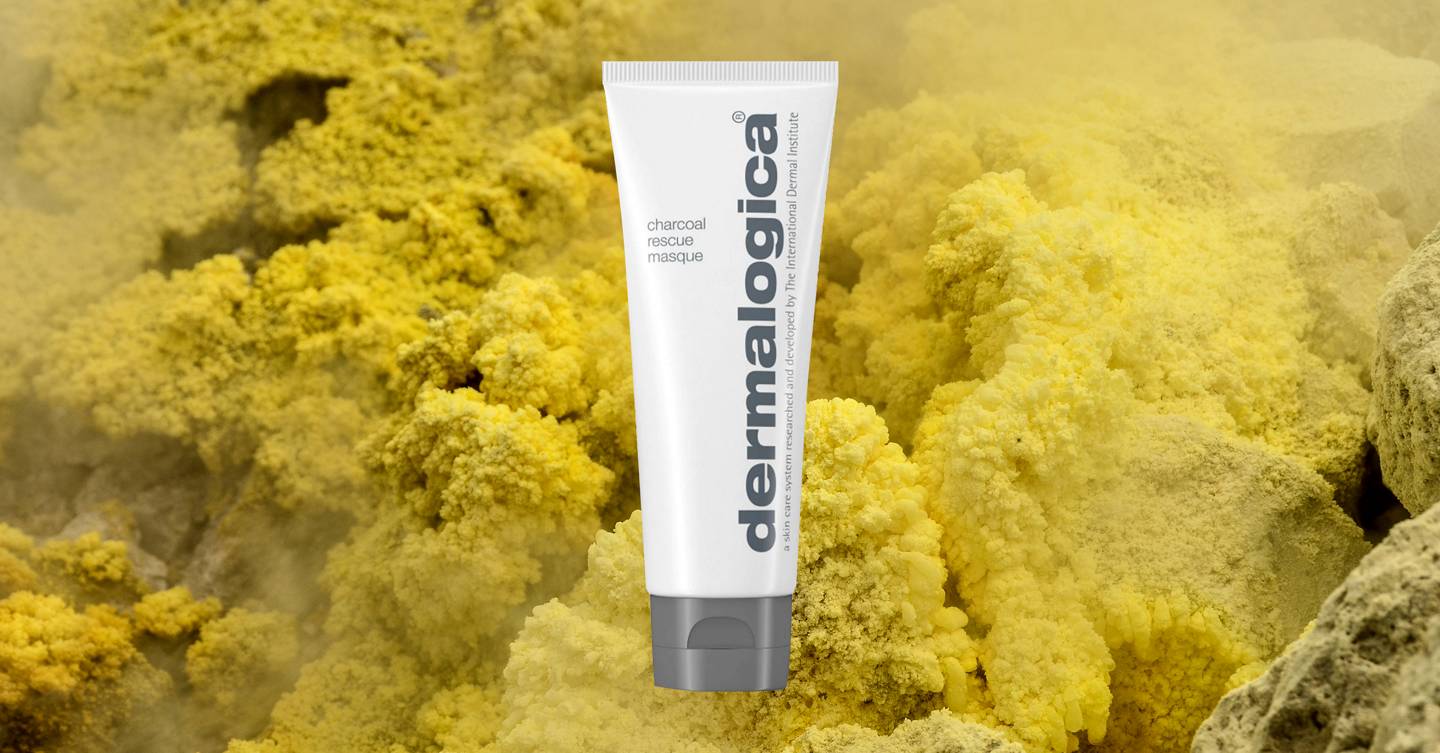The first thing that probably comes to mind when you think of sulphur is that it stinks. Like, it really stinks. But look past it’s rather pongy reputation from your GCSE chemistry days, and it’s a powerhouse ingredient for blemish-prone skin.
Luckily, modern product formulations smell much better than the sulphur you’d get an unfortunate whiff of near, say, volcanoes or hot springs, and thanks to the naturally-occurring mineral’s anti-bacterial and anti-inflammatory powers, it’s a very effective treatment for various types of acne.
How does sulphur work in skincare?
“Sulphur is an age-old treatment for those who suffer with mild to moderate acne as it absorbs sebum and reduces oiliness which can lead to breakouts,” says Dr. Selena Langdon, founder and medical director of Berkshire Aesthetics. “It’s a bacteriostatic agent which works to minimise the amount of acne-forming bacteria on the skin. It can also be used to unclog congested pores and draw out impurities, such as blackheads across the nose.”
It’s also a great pre-zit zapper if you can feel a spot developing under the surface of the skin. “Sulphur is very good to use in a preventative sense to stop breakouts, so ideal if you suffer breakouts around the time of your period.”
How should sulphur be used?
As sulphur is primarily used to dry out blemishes, it shouldn’t be used as a daily treatment. “Sulphur products are too drying to use very frequently,” cautions Dr. Langdon, “and while it’s a generally well-tolerated ingredient, it can cause excess drying, irritation and redness if over-used. I would recommend once or twice a week.”
Sulphur often comes in the form of a mask or a spot treatment; products which are generally used infrequently.
Who should avoid sulphur?
Dr. Langdon warns that sulphur may not be as effective for those who suffer more severe forms of acne. “Sulphur may not be powerful enough for nodular, cystic acne as a standalone product,” she advises. “It should also be avoided if you’re taking prescription medication, such as Roaccutane, which is already incredibly drying. Such a combination could lead to excess peeling, itchiness, drying and redness.”
Aren’t sulphates bad for you?
Though they sound similar, sulphur is totally different to sulphates. “Sulphates are essentially detergents often found in shampoos and cleaning products that cause formulas to lather,” explains Dr. Langdon, “and there’s a lot of controversy surrounding their usage – much like parabens – due to evidence suggesting that they’re carcinogenic. But they’re a totally different thing to sulphur, which is safe to use.”
